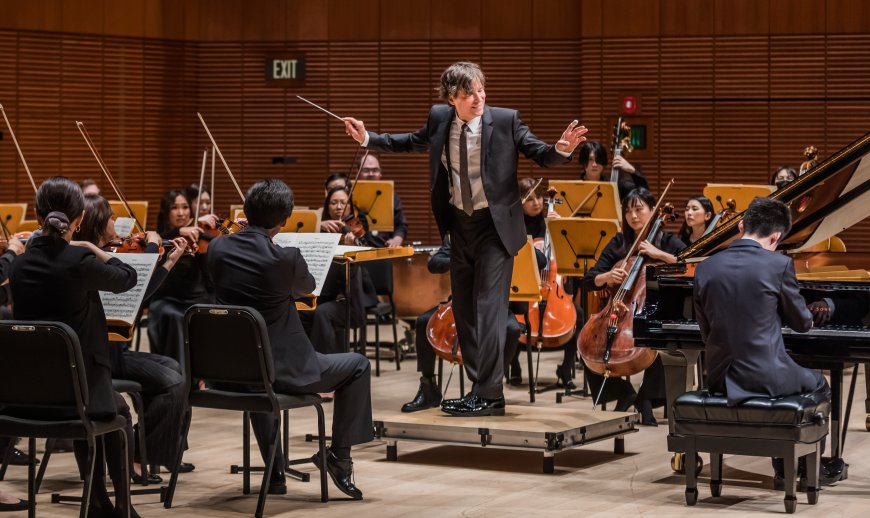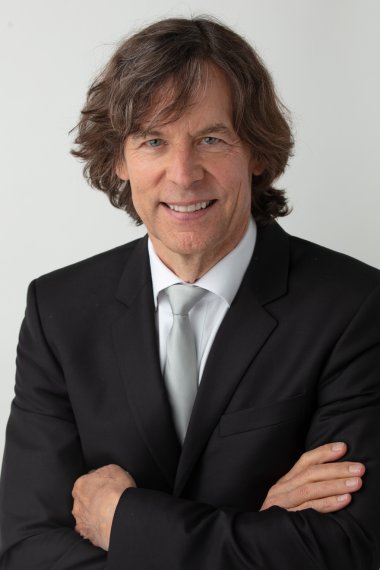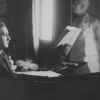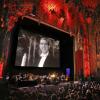
A new ensemble with deep Hollywood roots will give its debut concert on May 22 at the Wallis Annenberg Center for the Performing Arts in Beverly Hills. The Scott Dunn Orchestra, named for its conductor, is devoted to showcasing movie music as played by Los Angeles’ fine session musicians.
While the orchestra’s first performance had to be postponed due to the fires sweeping through Southern California in January, the upcoming concert, “Henry Mancini at 100,” will make for a perfect introduction to the group. In particular, the program demonstrates what a specialist organization can bring to the table.
Nowhere is that expertise more apparent than in how Dunn is approaching the concert’s subject. “Though well known as a creator of pop hits, [Mancini possessed] considerable gifts as a substantive composer for film,” Dunn explained. “[But] when his ‘soundtrack’ recordings were released, they were not the original recordings or cues from the films. They were new, pop-friendlier arrangements for [the record label] RCA, [and that’s what the] public came to know as the music from the films.”
Dunn has made it his mission to dig deeper. “I have found that the film-score originals are consistently compelling and beautiful,” he said. “Using original parts and scores from the Library of Congress and Mancini’s family, we’ve reconstructed the original soundtracks and created never-before-heard cues and suites from The Glenn Miller Story, Touch of Evil, Peter Gunn, Hatari!, Breakfast at Tiffany’s, Charade, Days of Wine and Roses, The Pink Panther, and Victor/Victoria.” And those are just a few choice selections from Mancini’s extensive filmography.
“We also will premiere works from slightly lesser-known titles that were Mancini’s personal favorites,” Dunn added. “And for the first time ever, his 1946 arrangement of Tex Beneke’s Bagatelle for the Glenn Miller band.”
Dunn’s comprehensive knowledge comes from years in the biz. Born in northern Iowa, he went on to develop a bicoastal career in New York and L.A. — initially as a concert pianist, later as an orchestrator and conductor. He’s led innumerable studio sessions as well as taken the podium at the Hollywood Bowl and Walt Disney Concert Hall to conduct both the Hollywood Bowl Orchestra and the Los Angeles Philharmonic.

One of the most important influences in his career, Dunn said, was the long mentoring relationship he shared with Leonard Rosenman, who scored over 130 films, winning a pair of Academy Awards for Stanley Kubrick’s Barry Lyndon (1975) and the Woody Guthrie biopic Bound for Glory (1976).
Ironically, Dunn soon came to realize that Rosenman, for all his successes, felt little love for Hollywood — the so-called “Hollywood paradox.”
“Leonard was personally quite frustrated with the film business,” Dunn said. “It’s always seemed funny to me that while he was one of the most successful composers of his generation in Hollywood, he never took any joy in it. He envied composers like Leon Kirchner and Elliott Carter. He thought that [modernist concert music] was his real place, but of course, [those composers] were envious of him and the money he was making.”
Another friendship that proved important to Dunn’s development was with John Mauceri, the man whom LA Phil impresario Ernest Fleischmann appointed to be the first music director of the Hollywood Bowl Orchestra. Mauceri’s unique style and rapport with audiences transformed weekends at the Bowl, and his programs frequently spotlighted music from the movies.
Dunn’s lengthy list of cinema collaborators and influences reads like a Hollywood who’s who and includes such contemporary composers as Alexandre Desplat, Danny Elfman, George Fenton, Michael Giacchino, Ludwig Göransson, Randy Newman, Thomas Newman, Rachel Portman, Alan Silvestri, Howard Shore, John Williams, and Hans Zimmer. Dun has also championed music by Hollywood marquee legends like Alfred Newman, Erich Wolfgang Korngold, Miklós Rózsa, Max Steiner, Dimitri Tiomkin, and Franz Waxman.
So there’s no shortage of material for the Scott Dunn Orchestra. Meanwhile, what was supposed the ensemble’s debut program, “The Hollywood Modernists,” has been rescheduled for November.




